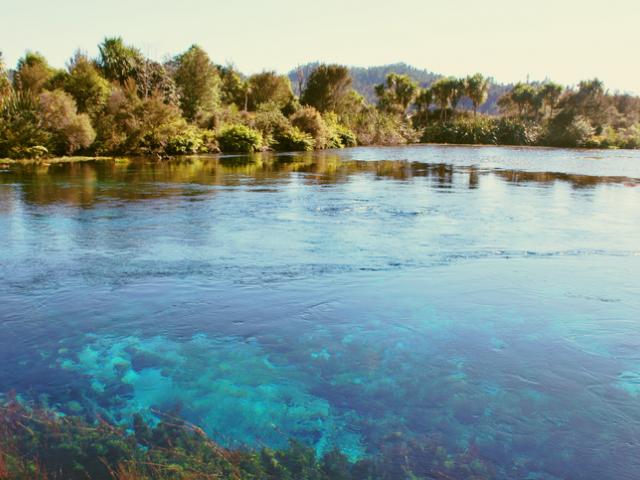
Environment Minister Nick Smith announced today that he had accepted an application for a water conservation order for Te Waikoropupu Springs in Golden Bay.
If one of the rare conservation orders is approved, the springs would have the equivalent of national park status.
It would become just the 16th waterway in New Zealand to attain this status, and the first springs.
"The Waikoropupu Springs are the largest freshwater springs in New Zealand and contain the clearest water measured anywhere in the world," Smith said.
"These iconic waters are well deserving of consideration for a WCO - the highest protection possible for a water body," he said.
The springs' water passes through the confined Mt Arthur karst aquifer, and has visibility of up to 63 metres.
"These springs are part of what gives Golden Bay, Nelson and New Zealand a strong environmental reputation, and we must ensure they are protected for future generations," Smith said.
The guardians of Te Waikoropupu Springs - sometimes known as Pupu Springs - applied for the measure because of concerns about an application to increase water allocation by 70 per cent in the region. There are also concerns about the effect of nutrient run-off on the springs.
A water conservation order can ban a regional council from issuing new water and discharge permits, but cannot affect existing permits.
A special tribunal will now be set up to consider the application. The final decision will be made by the minister.
The last waterway to be approved for a water conservation order was the Oreti River in Southland, in 2008.
The timing of the announcement is significant, because freshwater has become an increasingly sensitive issue for the National-led Government in election year.
Citing rising public concern about bottled water exports, the Government has asked for advice about whether a charge should be introduced for water take, rather than just charging companies for permits.
A Herald investigation revealed last month that ratepayers paid 500 times more on average for water than water bottling companies.
The Government has also set a goal of making 90 per cent of New Zealand's rivers safe to swim in by 2050 - a target which some say includes a lower standard for a "swimmable" river.
Waterways with water conservation orders
Motu River (1984)
Rakaia River (1988)
Lake Wairarapa (1989)
Manganuioteao River (1989)
Lake Ellesmere (1990)
Ahuriri River (1990)
Grey River (1991)
Rangitikei River (1993)
Kawarau River (1997)
Mataura River (1997)
Buller River (2001)
Motueka River (2004)
Mohaka River (2004)
Rangitata River (2006)
Oreti River (2008)












